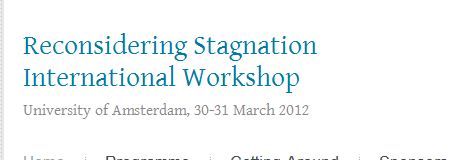Deadline 18 maggio 2020
The conference aims to study the interconnections between space, the environment and identity in the Eurasian region from different perspectives: extractive practices, religion and the sacred, and local citizenship movements. The Eurasian space, which the conference aims to explore, comprises Russia and India and the countries and regions between these two major powers (Central Asia, Mongolia and the Indian subcontinent). By focusing on this region, we aim to go beyond studies that examine environmental debates in Western liberal states and economies to analyse how non-Western civilizational and state models influence the way in which the environment is approached.
A major aim of the conference is to bring the postcolonial and postsocialist conditions of the post-Soviet space and the Indian subcontinent together in order to explore the similarities (and differences) that make these regions comparable; and, through the Eurasian geography and discourse, to some extent entangled and connected. This world is ‘floating precariously’ (McLeod 2016) between neoliberal and neo-colonial global capital. We observe several phenomena emerging: extractivism through resource grab, migration flows, de-secularization, climate change, and the realpolitik of the rise of conservative powers.
The study of environmental encounters in the Eurasian space demands that we consider various legacies that are present in the region. Major among these legacies, which have influenced the relationship of humans with the natural environment, are Soviet modernity and the colonial experience. Both are characterized by the duality of ‘nature’ and ‘culture’, which is central to the modern era and which has shaped the radical societal, political and environmental changes of the 20th century in the Eurasian space. For example, the attempt to control ‘nature’ has profoundly affected community life and livelihoods, previously embedded in the natural environment through relations of singularity and sacred enchantments. The attempts by the Soviet and colonial state to create new modern secular subjects have brought ‘disenchantment’ and a profound remodelling of the relationship between humans and the environment. Though postcolonialism has been preoccupied largely with the issues of identity politics, multiculturalism, and nationalism, an ecocritical turn in postcolonial studies has started to emerge (McLeod 2016), paving the way for a theoretical and practical engagement with environmental and ecological issues.
The Eurasian region can be conceived as a dynamic space in which new localized visions of orders and identities are emerging in attempts to ‘re-embed’ humans in their natural environment. They can take the form of movements to protect the natural space in a citizenship rights discourse, a re-enchantment of the relationship with nature or the re-establishment of a connection with ancestors, legends and myths as in the case of certain religious and indigenous communities.
We invite papers that explore the formation of new environmental and ecological visions and orders at the level of local communities, including citizenship projects, movements of contestation, sacred communities, utopias or eschatological visions, based on various forms of identification (religious, secular, ethnic, etc.). These visions of new or the restoration of old environmental and ecological orders and the identities they give rise to can be visions aimed at re-establishing a sense of what citizenship or a local identity means within the frames of the modern national state. But they can also go beyond these frames or even defy the secular order and modernity as in the case of certain religious communities and New Age utopias.
· What visions emerge at a local level of the ways in which humans can become “re-embedded” in a natural environment? Conservation, the revival of a sacred geography, citizenship mobilizations, social justice movements, spiritual renovation, the protection of the earth and the natural habitat, indigenous rights movements? Do these visions differ from Western liberal environmental projects, in what ways and how can these differences be connected to the particular legacies of Soviet modernity and colonialism in the Eurasian region?
· Are these visions redefining modern identity forms such as citizenship or proposing alternative ways of viewing community and identity in a post-secular world and in the times of the Anthropocene? What types of imaginaries do these visions give rise to: future utopias, past community forms and mythologies, decolonial or “rewilding” projects? What place do the state and extractive companies and also historical legacies occupy in these imaginaries?
· Are national states and extractive companies responding to these visions by reshaping their practices and adapting to ecological crises? What kind of discourses and projects exist at a state and corporate level? Conservative policies, the revival of sacred geographies, etc.?
Please send abstracts of 350 words to lilidipuppo@gmail.com, arna
Accommodation will be offered at the university guest house for selected participants for the duration of the conference. Travel and visa costs cannot be reimbursed, but invitations to apply for visas will be provided.
For additional information, please contact the conference organisers:
Arnab Roy Chowdhury (Assistant Professor of Sociology, NRU Higher School of Economics)
Lili Di Puppo (Assistant Professor of Sociology, NRU Higher School of Economics)
Christian Fröhlich (Assistant Professor of Sociology, NRU Higher School of Economics).













